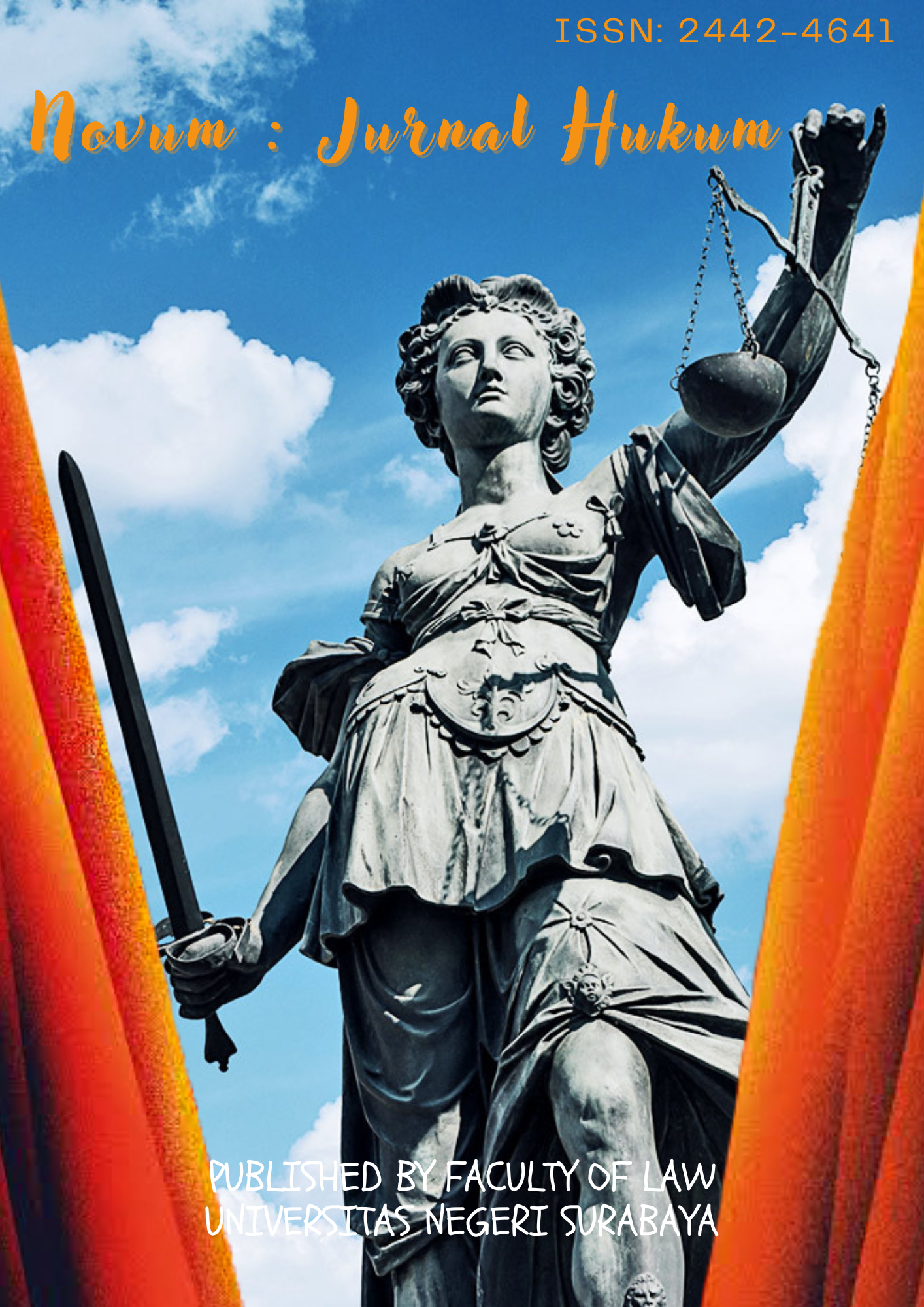Settlement of Corruption Crimes on the Basis of Restorative Justice in SE Attorney General Young Special Criminal Number B-1113/F/FD.1/05/2010 Contrary to Article 4 of the PTPK Law
DOI:
https://doi.org/10.2674/novum.v3i3.55505Abstract
Corruption is an act that can directly or indirectly cause state losses. Current developments, both the quality level of crime and the quantity level of cases are increasing continuously every year. In order to reduce the swelling in the cost of resolving criminal acts in Indonesia, the Indonesian Attorney General's Office issued SE Jampidsus Number B-1113/F/FD.1/05/2010 which discusses Restorative Justice in resolving corruption crimes with relatively small losses prioritized not to be followed up when the perpetrator has returned state financial losses. However, this is contrary to Article 4 of Law No. 31 of 2019 concerning the Eradication of Corruption, which states that the return of state financial losses made by the perpetrator still does not climinate the criminalization of the perpetrator of the crime of corruption. The objective to be achieved is whether the settlement using restorative justice is contrary to Article 4 of the Anti-Corruption Law. This type of research uses normative research using a statutory approach and a conceptual approach. The results of this study use the concept of restorative justice in Resolving corruption using restorative justice is contrary to Article 4 of the PTPK Law because restorative justice only fulfills the element of benefit and does not fulfill the elements of justice and legal certainty.
Downloads
Downloads
Published
Issue
Section
License
Copyright (c) 2025 Esa Setya Al Akbar, Emmilia Rusdiana

This work is licensed under a Creative Commons Attribution-NonCommercial-ShareAlike 4.0 International License.
 Abstract views: 68
,
Abstract views: 68
, PDF Downloads: 9
PDF Downloads: 9



